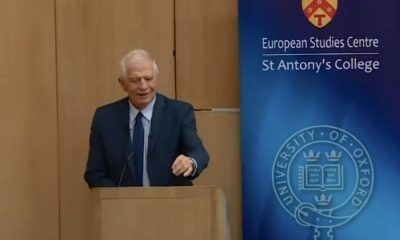ענערגיע
# קאָאַל: קיין געגנט לינקס הינטער: לאָנטש פון פּלאַטפאָרמע פֿאַר קוילן מקומות אין יבערגאַנג

 The EU's commitment to a clean energy transition is irreversible and non-negotiable. In this shift to a more sustainable future, no regions should be left behind when moving away from an economy driven by fossil fuels.
The EU's commitment to a clean energy transition is irreversible and non-negotiable. In this shift to a more sustainable future, no regions should be left behind when moving away from an economy driven by fossil fuels.
The new Platform launched today will facilitate the development of projects and long-term strategies in coal regions, with the aim of kick-starting the transition process and responding to environmental and social challenges. It will bring together EU, national, regional and local stakeholders involved in the transition to help them foster partnerships and learn from each other's experiences. The Platform's activities will initially focus on coal regions, with the aim to expand to carbon-intensive regions in the future. It is designed to boost the clean energy transition by bringing more focus to social fairness, structural transformation, new skills and financing for the real economy.
The Coal Regions in Transition Platform will officially be launched later today by Maroš Šefčovič, Vice-President of the European Commission in charge of the Energy Union, Miguel Arias Cañete, Commissioner for Climate Action and Energy and Corina Creţu, Commissioner for Regional Policy as well as representatives of European regions, different stakeholders and business leaders. The launch takes place on the eve of the "איין פּלאַנעט סאַמיט" convened by the French President Emmanuel Macron to mark the second anniversary of the Paris Agreement on climate. At the summit, the Commission will reconfirm its commitment for a forward-looking climate policy and show that the EU is leading the fight against climate change by example and through action. The new Platform is one of the key accompanying actions part of the Clean Energy for All Europeans package (יפּ / קסנומקס / קסנומקס) launched in November 2016.
Energy Union Vice President Maroš Šefčovič said: "The challenges facing the EU coal regions can only be addressed in partnership with all actors on the ground. The Energy Union is the right framework for this. We want to work closely with national, regional and local stakeholders in support of the structural transformation, using tailor-made solutions and all means at hand. Our objective is to see every region reaping the benefits of the clean energy transition, whilst creating new jobs and promoting investment in new technologies."
Climate Action and Energy Commissioner Miguel Arias Cañete added: Governments, business and regions all around the world are moving beyond coal. Electricity generation from coal is declining. This is an irreversible trend towards clean power, also here in Europe. But in this shift to a more sustainable future, there will be certain regions which find it more difficult than others to make this transition. All Europeans should benefit from this transition, and no region should be left behind when moving away fossil fuels. This initiative will help European countries, regions, communities and workers to the take on the challenge of the required economic diversification of the clean energy transition."
Regional Policy Commissioner Corina Creţu added: “Working together for a better common future is what the European Union and Cohesion policy are about. Our message to coal regions today is that the European Commission takes concrete actions to help them achieve a smooth transition towards a modern, sustainable and successful economy that leaves nobody behind."
The Commission is already supporting the transition in coal and carbon-intensive regions through its Cohesion policy. This EU-wide policy helps regions achieve economic transformation by building on their "סמאַרט ספּעשאַלאַזיישאַן" assets, i.e. the regions' niche areas of competitive strengths, with the aim to embrace innovation and decarbonisation. Via Cohesion policy, the EU is in direct and constant touch with regional partners on the ground and can provide tailored support to guide structural change.
In parallel, the Commission is working on a pilot basis with a small number of regions in member states on planning and accelerating the process of economic diversification and technological transition through technical assistance, information exchange and tailored bilateral dialogue on relevant EU funds, programmes and financing tools. Based on requests by these member states, pilot country teams for Slovakia, Poland and Greece were established in the second half of 2017 to assist the regions of Trencin, Silesia and Western Macedonia based on their specific needs. As the work of these teams progresses, their experiences will be shared with the Platform for Coal Regions in Transition.
הינטערגרונט
41 regions in 12 member states are actively mining coal, providing direct employment to around 185,000 citizens. However, over the past few decades the production and consumption of coal in the EU has been in steady decline. Planned and ongoing closures of coal mines, and the commitment by a number of member states to phase out coal use for power generation are expected to accelerate this downward trend. In view of this, the Platform for Coal Regions in Transition is designed to assist member states and regions in tackling the challenge of maintaining growth and jobs in these affected communities. It will enable multi-stakeholder dialogue on policy frameworks and financing, and cover areas such as structural transformation, including economic diversification and reskilling, the deployment of renewable energy technologies, eco-innovation and advanced coal technologies.
This Clean Energy for All Europeans package not only focuses on the fight against climate change, it is also conducive to jobs and growth – by stimulating new employment opportunities in the energy sector and investment in modern technologies. Between 2008 and 2014 the number of jobs in renewable energy technologies increased by 70%, and today there are roughly 2 million clean energy sector jobs across the EU, mainly in the renewables and the energy efficiency sectors. There is potential to create an additional 900 000 jobs by 2030, provided that public and private investment are sufficiently mobilised. Up to 400 000 additional local jobs could come from the energy efficiency sector.
מער אינפֿאָרמאַציע
שער דעם אַרטיקל:
-

 פּראָסט פרעמד און סעקוריטי פּאָליטיקקסנומקס טעג צוריק
פּראָסט פרעמד און סעקוריטי פּאָליטיקקסנומקס טעג צוריקאי.יו. פרעמד פּאָליטיק טשיף מאכט פּראָסט סיבה מיט וק צווישן גלאבאלע קאַנפראַנטיישאַן
-

 יראַןקסנומקס טעג צוריק
יראַןקסנומקס טעג צוריקפארוואס איז דער רוף פון די אי.יו. פּאַרליאַמענט צו רשימה די IRGC ווי אַ טעראָר אָרגאַניזאַציע נאָך נישט גערעדט?
-

 ברעקסיטקסנומקס טעג צוריק
ברעקסיטקסנומקס טעג צוריקא נייע בריק פאר יונגע אייראפעער אויף ביידע זייטן פונעם קאנאל
-

 קירגיזיעקסנומקס טעג צוריק
קירגיזיעקסנומקס טעג צוריקדי פּראַל פון מאַסע רוסיש מיגראַטיאָן אויף עטניק טענסיאָנס אין קירגיזיע



























